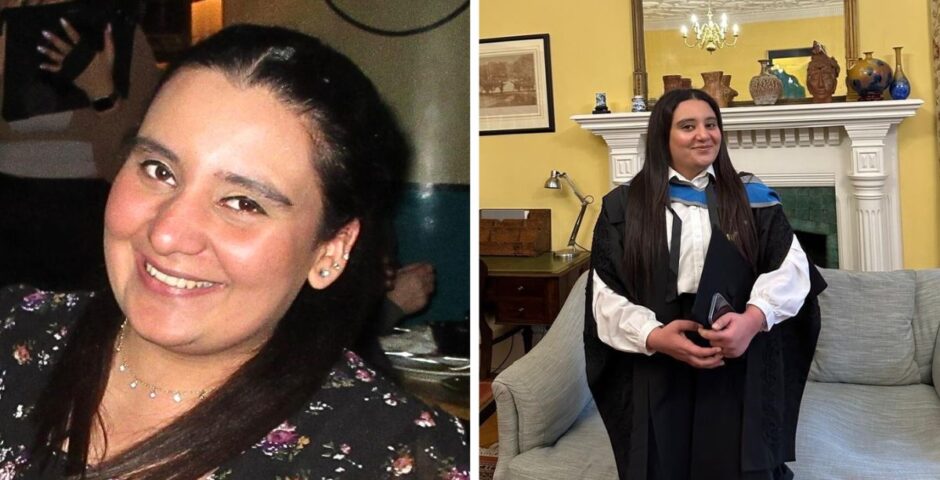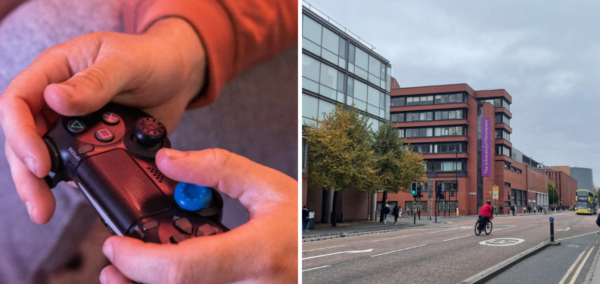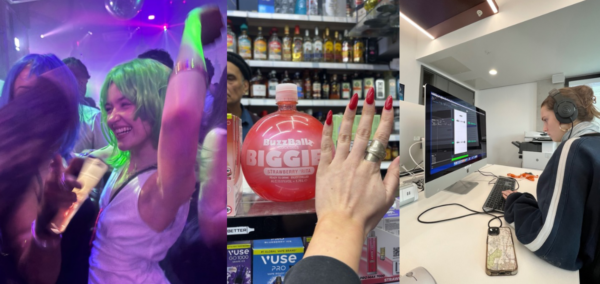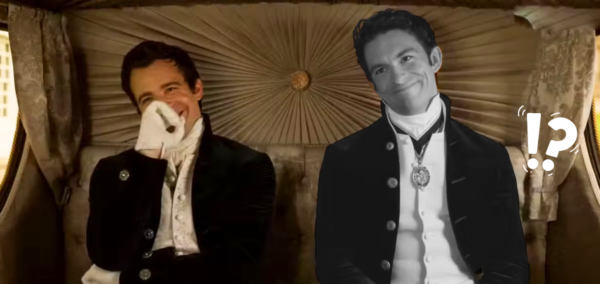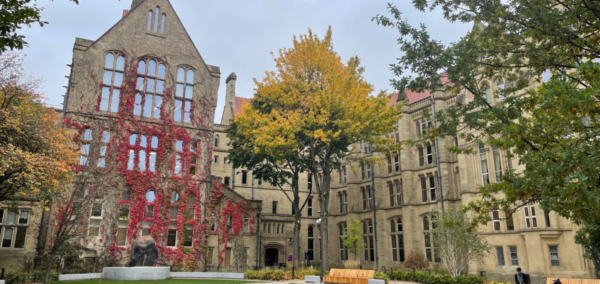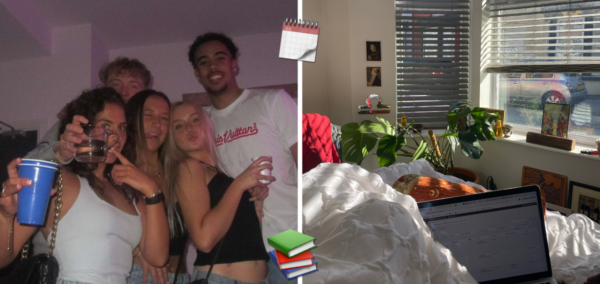
How your Education and Wellbeing officers’ experiences have shaped their manifestos
We asked your Full-Time Officer candidates some questions to get to know them a little better
Candidates for the 2024/25 Students’ Union have been announced, and with voting opening on Tuesday 5th March, we asked them some questions about themselves and their manifestos.
All candidates were asked what their number priority is, how their personal experiences have shaped their manifesto, and what sets them apart from their opponents.
You can read their manifestos here.
Education Officers
Tom Cross

via @tomcr0ss on Instagram
Over their time at Lancaster, Tom has been an academic rep, a student trustee, and an LGBTQ+ Officer for the SU. Through these roles, they have provided healthy food for LGBTQ+ students, helped subsidise travel costs for academic trips and organised protests. Their main aims are to continue cost-of-living support, free up Wednesday afternoons for students, improve the academic rep system, campaign against discrimination, improve accessibility, and campaign for postgraduate students.
Their personal experiences have shaped their manifesto as they have “tried to address many of the problems I’ve faced as a student whether that’s cost-of-living support, not knowing what my rights are as a student at Lancaster and a lack of training as an academic rep.”
They said, “In my manifesto, I made six firm commitments, all are realistic, all address real problems students are facing and all are achievable and I’ve set out how to do so. Whereas there seems to be a lack of strategy for other candidates as to how they’ll achieve their goals.”
Joshua Chooyin

via @jlchooyin on Instagram
Most Read
Joshua has previously served as a faculty rep and is currently the engineering department rep. His main aims are to improve the transparency of the university and LUSU, improve fairness by stopping student poverty, and better support for students and those who are academic reps. “My main priority as education officer is improving the academic rep system… Currently, the students’ union does very little to support the daily work of the rep.”
His personal experiences as an academic rep have shaped his manifesto, stating “I have seen students pulling out due to the cost of living and mental health issues caused by unfair workloads.”
When asked what sets him apart from his opponents, he said, “My competitors want to work on what the Students’ Union already know and care about… I want to build a system where problems don’t become longstanding issues, whilst supporting the ongoing work of the students’ union.”
Huseyn Guliyev

via @vote_for_huseyn on Instagram
Huseyn is the faculty representative of management school and works with the SU to represent the student voice. His main aims are to secure open university access to GPT-4 and Generative AI tools and to change the policy on academic extensions by allowing for up to three no-questions-asked extensions throughout the year.
Huseyn is passionate about his main aims, sharing that “Students shouldn’t be expected to write 10,000 words in two weeks, and this is also what my campaigning is about.”
He said that his focus on two main aims is what sets him apart from his opponents. “I don’t want to spread myself thin on many different promises and underdeliver on most of them. I would much rather focus on a few issues and solve them completely.”
Harrison Stewart

via @harrison4education on Instagram
Harrison is the current Vice President Union Development for LUSU. He states that by the end of his role, he has, or will have made, the SugarBus free and ensured that LUSU goes carbon neutral by 2030. His main aims are to free Wednesday afternoons for BUCS Sport, cut the timetabled day to nine to five, and have climate and sustainability embedded into the university curriculum.
Harrison’s experiences at Lancaster have shaped his manifesto. “I’m a BUCS player myself so know first-hand how important having time to play sport is for both mental & physical wellbeing and personal development.” He also credits his experience as Vice President Union Development. “I’ve led on LUSU’s response to the Climate Crisis and after travelling Europe to research international education sectors, I know that sustainability education can be amazing.”
This experience is what sets him apart from his opponents. “It takes around three to four months to train to be an effective FTO. Because I’ve already had this training, I’ll have around 100 days’ worth of a head start to achieve the things I’ve set out to achieve.”
Wellbeing Officers
Ella Smith

via @ella_for_wellbeing on Instagram.
Ella has previously served on Lonsdale College’s JCR, as well as being on the exec for SCAN. Her main aims are to promote safety for students, which includes reforming the “difficult to navigate” university counselling and wellbeing system, supporting communities such as colleges, societies, sports, and liberation groups, and to revise and expand student financial assistance.
Ella’s number one priority is “to reform the way students navigate the wellbeing options available, by implementing clearer signposting”, and believes her “enthusiasm for helping people connect with each other is probably my best attribute” sets her apart from other candidates. She developed this further: “working as part of the She Should Run campaign was an empowering experience to bring people together and shed light on the challenges of being womens+. Becoming LUSU Wellbeing Officer would mean continuing this work on a larger scale, helping all students to find connections at Lancaster.”
Ella’s personal experiences have shaped her manifesto through her role as International Welfare & Education Officer for Lonsdale JCR, helping to curate and run two freshers weeks, as well as many international events. She wishes to improve the training for Execs would to make these roles even more beneficial to students. Additionally, prioritising collaboration across societies and forums works to make a more connected student population.
Will Oliver

via @will_for_wellbeing on Instagram
Will is Lonsdale College’s Men’s+ Welfare Officer. As a third-year student, he says he has “learnt to navigate” the university’s wellbeing services. His main aims are to continue work towards cost-of-living support, improve mental health services, enhance response systems for discrimination, and support wellbeing within societies. “My number one priority for wellbeing is cost of living support. Maintenance loans are the main issue, as they barely cover accommodation costs for many people.”
Will’s personal experiences have shaped his manifesto, stating that they “…have shown me how fragmented the infrastructure of the university is and how difficult it can be to report incidents. What I went through is just a fraction of what some have to deal with…”
He feels that he is “in a good position to better engage Lancaster with the university”, and his “involvement with the Dukes, the Gregson Centre, Morecambe Film Festival and Litfest have shown that there is a space for us in the wider community and making students more welcome in town would be a good thing.”
Joe Innes
Joe’s main aims are to provide mental health training for society and JCR execs, increase collaboration between the SU and JCRs, Liberation and Campaign Officers, and Forums, and to ensure the SU is committed to extensive cost of living support.
Featured image via @harrison4education on Instagram, @tomcr0ss on Instagram, @jlchooyin on Instagram, @vote_for_huseyn on Instagram, @will_for_wellbeing on Instagram, and @ella_for_wellbeing on Instagram.




